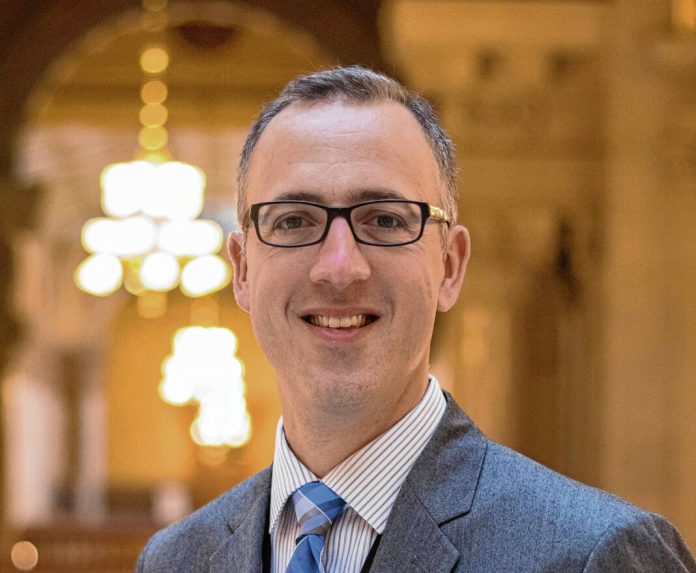Crime is a perennial issue already prominent in this election year’s conversation. So, before memory fades and the pitched political battles of 2024 derail our attention, let’s reflect on the last few months of criminal justice policy at the Statehouse.
New crimes, enhanced penalties
We all want safe neighborhoods. We also crave vindication and are enamored by crime fighters in fiction and real life. It’s part of our nature. After all, “Law and Order” has staying power for a reason. Not coincidentally, the General Assembly proposes new crimes and enhanced penalties every year. This year was no exception.
One proposal would have made it a misdemeanor to engage in “reckless spinning” (think of doing donuts in the parking lot), and another would have criminalized the sale of “food containing high fructose corn syrup.” Neither bill made it to the finish line.
Others did. A new law makes it a felony to damage a sprinkler system in a penal facility. Another increases the penalty for falsely reporting a crime if it results in bodily injury or death, and a third will make it a felony to smuggle a “chemical intoxicant” into a jail.
“Sounds good,” you might say. Damaging public property, disrupting jail operations, and siccing SWAT on people you dislike are antisocial behaviors we cannot accept. Moreover, protecting life, liberty, and property is arguably the first function of government.
But the Indiana Code already criminalizes all this bad behavior (except dealing in Twinkies). These actions are criminal recklessness, criminal mischief, or illegal trafficking. Adding more statutes or jail time is unlikely to deter any of it. On the contrary, overcriminalization will lead only to charge stacking, coerced plea agreements, and, ultimately, the uneconomical and counterproductive practice of mass incarceration.
Addressing criminal ingenuity
Admittedly, we occasionally encounter novel behavior that existing criminal law cannot capture. House Enrolled Act 1047, authored by Rep. Sharon Negele, is a cutting-edge piece of legislation that addresses a genuinely new development: artificial intelligence.
While some fret about the science fiction fantasy of self-aware “Terminator”-style robots, our experience with AI has spawned a real-life horror. Using AI, pornographers have begun inserting unwitting “participants” into their work. And internet trolls using “undressing apps” are transforming PG social media posts into R-rated images.
HEA 1047 will criminalize this conduct. Importantly, it will criminalize the action while minimizing damage to free speech. Hopefully, the bill will have the desired effect.
Tackling the root cause
Still, thicker law books are generally not the way to curb criminal activity. There is almost nothing new under the sun regarding crime. We’ve had millennia of murder, arson, battery, theft, rape, and the like. Criminal law is steeped in this history but also adaptable enough to deal with uncertainty.
The law codifies and defines offenses but uses words of general applicability to fit various circumstances. Moreover, the law criminalizes conspiracy, imposes accomplice liability, and treats an attempt to commit a crime like the crime itself. All these tools allow courts, juries, and good prosecutors to fill any gaps in the criminal code that might arise. In other words, a lack of crimes to prosecute is not the problem.
Instead, we must address the root causes of crime, including unmet mental health needs and substance abuse. The General Assembly took steps toward improving the mental health of Hoosiers in 2023, and the 2024 session continued that effort.
House Enrolled Act 1238, authored by Rep. Wendy McNamara, and House Enrolled Act 1418, proposed by Rep. Lori Goss-Reaves, build on past progress.
HEA 1238 concerns mentally incompetent criminal defendants. These individuals cannot comprehend or participate in the proceedings against them and, therefore, cannot constitutionally stand trial. Instead, they must be assessed and provided services to restore their competency. HEA 1238 will improve the restoration process for low-level offenders by speeding up the evaluation process and providing an off-ramp for those suffering from certain conditions that are unlikely to improve.
Similarly, HEA 1418 will provide pregnant women charged with a drug crime a chance to access treatment without jail. The bill allows a judge, in consultation with the prosecutor, to refer women to a diversion program that provides services rather than a prosecution that provides jail time.
Conclusion
As with most sessions in recent memory, the 2024 session included bills to enact harsher penalties and new crimes. This urge is understandable but undesirable. Innovative legislation like HEA 1047, HEA 1238, and HEA 1418 reflect a better approach. So, when campaign commercials and flyers start to fill the airwaves and mailboxes with promises to be tough on crime, let’s remember there is another way. We can enhance public safety while fostering a more just and economical criminal justice system.
Zach Stock is an appellate public defender and serves as legislative counsel for the Indiana Public Defender Council. This commentary was originally published on indianacapitalchronicle.com. Send comments to [email protected].




